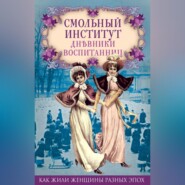По всем вопросам обращайтесь на: info@litportal.ru
(©) 2003-2024.
✖
Tales from the German, Comprising specimens from the most celebrated authors
Настройки чтения
Размер шрифта
Высота строк
Поля
"Never," cried Axel, as he concealed the precious pledges in his bosom.
"'Never;' say you, youngster! you are rather too bold for me," said the old man, menacing with his finger. "Go, settle it yourself with the Fräulein. There she stands in the garden, near the rose-tree, herself the most beautiful rose in the garden. How wicked must be that worm that would malignantly approach this flower to poison its sweet bloom – are you not of the same opinion?"
"Indeed I am of the same opinion," said the groom; "be unconcerned about this sweet flower which so proudly sets forth your care as its gardener. With the ray of love it will bloom more beautifully, and if myrtle and laurel shall once be entwined around it you will weep tears of joy."
"Amen," said the old man, with emotion, and Axel ran to the garden to Tugendreich.
"The magister demanded from me the handkerchief and ribbon in your name, Fräulein," said Axel; "I only bring you back the former, stained with the blood which flowed for you. May it speak a friendly word for poor Axel, when some day he will sigh far from you. The ribbon I must keep. It rested on your angelic heart, it is hallowed, and it will also hallow and purify the heart upon which it shall rest from this time."
Tugendreich wished to answer but was unable, she wished to look up but could not. It then occurred to her that she ought really to be indignant at this audacity, but that she could do still less; and the beautiful rose which she held in her hand became the victim of her inward struggle, for she plucked off leaf after leaf, dropping them on the ground.
"May I keep the ribbon?" asked Axel, imploringly. She at length raised her beautiful eyes, and a ray of love flashed powerfully from them. Enraptured he stretched out his arms to embrace her; deeply blushing, she sank into them, and he pressed the first pure kiss of ardent love on her lips. At this moment the baron suddenly appeared from behind the hedge, contemplating the group with a truly noble horror. "Begone to the castle!" he cried to his daughter; "to the stable!" he cried, in a voice of thunder, to Axel. Like a finger-post, he pointed to the places mentioned, and the frightened couple obeyed in silence.
In anxious expectation of what would follow, Tugendreich had been standing for some time in the window of the baronial hall, from which she had in the morning admired Axel's horsemanship, when her father came up to her with a wrathful countenance, seized her hand, and led her to the gigantic portrait of the ancestors of the Starschedels, which gloomily and menacingly looked down, as it were, from the gold frame upon the delinquent. "Who is that?" asked the baron, with suppressed wrath.
"Magnus von Starschedel, the founder of our family," repeated Tugendreich, words which had been impressed on her memory from infancy. "In the war against the emperor, Henry IV., Duke Rodolph of Swabia dubbed him knight, A.D. 1078, at Stronow, near Mellenstädt; and he fell in the battle fought against the same emperor, near Würzburg, A.D. 1086, after his valour had contributed to gain the victory."
"What think you this glorious knight would have done, if he had, like myself, seen you from behind the hedge?" asked her father, while Tugendreich cast her eyes down on the squares of the inlaid floors. "He would have cleft the head of the unfaithful servant," continued the baron, raising his voice, "and thrown the degenerate girl into the dungeon, until he should have placed her and her passion for ever in a cloister."
The Fräulein gave a silent assent to the justice of this sentence.
"Tugendreich! Tugendreich!" continued her father, reproaching her; "why did I give you this lovely name?[14 - The name Tugendreich means "rich in virtue."] I ought to have christened you Philippe, for Talander has interpreted this name to me, to mean a lover of horses, and it would therefore be some excuse for your predilection for the stable."
Now a feeling of pride rose within her, and she cried, "I deserve blame, but do not merit your contempt. My feelings are pure, and I need not be ashamed of him."
The furious impetuosity of noble wrath would now have broken through the last barrier of paternal love, when fortunately for the poor Fräulein a loud shriek of terror resounded from the court-yard, and Talander entered the hall with a countenance as pale as death. "May God and his holy gospel protect us," exclaimed the old man. "A swarm of Croats is storming through the country, and may probably come this very night."
"Well," replied the baron, with affected composure, "Saxony has nothing to fear from the troops of his Imperial Majesty."
"So you think, my lord, but I do not," rejoined the magister, trembling. "People whisper already about the alliance concluded between Saxony and Sweden, and if the Croats are terrible even as friends, may Heaven preserve us against their inroads as enemies. They are said to commit the most awful havoc on the estates of the protestant noblemen."
The baron fell into an arm-chair as if thunder struck, and Tugendreich was wringing her white hands as Axel entered the hall. A helmet covered his head, a sword was rattling at his side, and before the old baron could think of his wrath against him, he said in a firm and manly tone, "The Croats are approaching, and will not want a pretext for committing their depredations here as they have done every where else; your property and life, and the honour of your lovely daughter are in jeopardy. Nothing but a bold resistance can save you. Isolani's followers spare nothing, not even those who submit readily."
"Are you out of your senses?" asked the baron. "With what force am I to begin the struggle against an imperial army?"
"Only he who abandons himself is abandoned," said Axel. "This castle has high, strong walls and deep moats. I have raised a whole village, and have armed your ranger and servants. If they follow my advice they will all take refuge here with their property. We must give up the village, and hold out here until succour comes."
Surprised by Axel's bold design and chivalrous conduct, old Starschedel sat there as incapable of opposition as of coming to a resolution of his own. "The means are desperate," said Talander, "but I see no other way of proceeding."
"But what of the imperial band?" sighed the old baron.
"We do not resist the imperial troops," argued the magister, cunningly. "We only protect our property against marauders and robbers, who plunder the country contrary to the will of his imperial majesty."
"Tell the people from the balcony that I act in accordance with your wish," said Axel, "and leave the rest to me."
Starschedel looked inquiringly at his oracle, who returned a nod of approbation, and submitted patiently to be dragged to the balcony by Axel, where he delivered general orders of obedience to Axel, though often interrupted by shortness of breath. A loud vivat resounded from the robust Saxon youths, who were eager to fight.
With proud satisfaction Tugendreich looked down on the singular groom who instructed the armed band in the court-yard as if he had been used to military duty all his life, assigned to every one his post in the court-yard, ordered the placing of men, cattle, and property, and then sallied forth with the mounted servants to reconnoitre the enemy. The baron, in the meanwhile, buried with trembling hands a casket of jewels in the cellar, while master Talander looked through his long telescope at the stars which now began to appear, compared his observations with the singular circles, lines, and signs upon a large table, and then made his calculations until the drops of perspiration stood upon his forehead, examining the results now with a joyful nod, and now with a thoughtful shake of his white head. At midnight the reconnoitring corp returned. The garrison was summoned with beating of drums, and Axel addressed them as follows: "The Croats will presently enter the village and will not spare any thing; the sky is already red with their torches; they will burn here also, but we shall be secure behind these walls while you show yourselves to be men. Bear in mind that you are to fight for your good lord and his noble daughter, for the pure doctrine of the gospel, for your venerable pastor, for the honour of your wives, and for the lives of your children. Now long life to the elector!"
"Long life to the elector!" shouted the band after him, joyfully; but the "Hoch" stuck in many a throat, as at this moment the music of the approaching Croats chimed in with their "Vivat" as a flourish.
"To your posts," cried Axel in a thundering voice, and then once more looking to the draw bridge, he ordered the gates to be secured and ascended the battlements of the donjon. A wild tumult was now heard in the village. The Croats searched boisterously for the inhabitants and provisions but in vain, and therefore avenged their disappointment upon the doors and windows of the cottages. At length a troop with torches galloped up to the castle, startled at the drawn bridge and sounded the trumpet as a summons for admittance. The trumpet within the castle was sounded in answer, and Axel asked in military form what was their wish.
"Down with the bridge first," blustered an infuriated captain of the Croats in broken German, "and then you will see what we want."
"Show us the orders of his Imperial Majesty and our Elector, that this castle is to receive a garrison," replied Axel, modestly, "and the bridge shall immediately be lowered."
At this the foreign barbarian foamed with rage, snatched his carbine from his saddle and fired it at Axel. The bullet missed, and Axel in return sent a bullet from his gun whizzing through the cap of the Croat.
"This is to teach you uncivilized fellows the usage of war, that no shot should be fired during a parley," he cried. "My shot was only to warn you of this; but if you do not draw off, the next shall be in earnest." Upon this the captain swearing turned his horse round and galloped madly back into the village with his troops.
As Axel was turning to descend, he saw Tugendreich standing before him as pale and motionless as a statue. "For heaven's sake, Fräulein," he cried, "what are you doing up here? this is not a place for a gentle lady."
"I heard firing," said the lovely girl, sighing deeply; "I thought you were in danger, and could not longer remain below."
"Faithful heart!" exclaimed he, with emotion and affection. "By all that I hold sacred I will some day requite you." And quickly taking her in his strong arms he carried her down the steps, and consigned her to her attendant, whom he strictly enjoined not to allow the Fräulein to ascend the walls again. He then returned quickly to his post, as he already heard resounding through the night the march of the approaching enemy threatening the castle.
Suddenly the thatched cottages of the villages were blazing up in a terrible manner. Amid the light of the flames the Croats assaulted the castle in close bodies and with wild fury. But the garrison made a brave resistance, and their rifles created great havoc among the enemies' ranks. Axel was everywhere, and though the Croats attempted in different places to scale the walls by the aid of ladders, he immediately was at the spot, to strike down the foremost, and then with powerful hand to precipitate ladder and all into the moat. For an hour the most furious combat had been raging when the enemies' trumpets sounded the retreat, and the infuriated captain who led the rear cried out with a savage laugh, "At sunrise we shall return with heavy cannon, and show you who we are."
The morning dawned after a sleepless night, and found the two old gentlemen sitting sorrowfully in Talander's closet, which was bomb-proof. The lamp was nearly out, and they started up terrified on hearing the trumpet sound outside the castle walls. After a short time Axel, who had been wounded in the cheek, entered, announcing Baron Grotta, lieutenant-colonel in the imperial army, saying, "My lords, the colonel awaits you in the hall: for heaven's sake show no fear, and let the magister settle the terms of a capitulation."
He consented and left the room. On arriving in the hall a fine-looking officer met him, whose countenance might be called beautiful, had there not been an expression of defiance and haughtiness about the eyes and mouth which detracted from the impression first produced. After the usual civilities had been exchanged, the stranger informed him that a division of the imperial army was to pass through the village on that day, and that their general had learned with astonishment the audacity with which the castle had opposed their light troops; that he was inclined, however, to pardon this, knowing the rapacity and outrages of the Croats, who made no distinction between friend and foe; but that now he expected the castle to be surrendered to him immediately.
"On what conditions," asked the astonished baron.
"Methinks you ought to be glad if an imperial general," said he in a sarcastic tone, "after what has happened, once more kindly invites you to trust blindly to his generosity. At all events it is more advisable for you to open your gates than to let our cannons burst them open."
At this moment the beautiful Tugendreich entered the hall, followed by a servant with flasks and goblets. Love, with its joys and sorrows had diffused a supernatural charm over her noble countenance, which did not fail to produce so magical an effect upon the warrior, that he at once in a gentler tone added to his menaces the question, "Is this your daughter?" The baron then introduced her, and the stranger took the brimming goblet she presented to him, and in a polite manner asked on what conditions the castle would capitulate. The baron pleading indisposition in consequence of the nightly assault promised to send his chaplain to negociate, and left the hall delighted to be released from this purgatory. The experienced hero now addressed himself courteously to the Fräulein, and after condoling with her on account of the terrors of the past night, and expressing his satisfaction at being able to contribute something to alleviate their present situation, was beginning to get as sentimental as it became a soldier in the thirty years' war, when old Talander entered bowing, followed by Axel, who, unarmed, and in a respectful manner, brought in writing materials.
"In the name of my noble master I am to have the honour of treating with you, gallant sir," said he in a submissive tone; "we have only a few just conditions to propose, which I beg your gracious permission to state."
"Granted," said the colonel, casting an expressive look at the Fräulein, which told her it was only on her account that he granted any conditions whatever. The magister began to read the following propositions: "Unconditional amnesty for the past night; liberty for religion and her servants until the fate of this country is decided; exemption from all contributions under whatever name or pretext they may be demanded."
"Great demands," interrupted the colonel.
"In return, Baron Von Starschedel grants to the troops of his imperial majesty the right of garrison in his castle," continued Talander.
"But only to the regiment of Tiefenbach," interrupted Axel, hastily. "It is best disciplined, and the promise which your general has given us in writing is a security of the capitulation being kept."
With angry astonishment the stranger looked at the insolent groom. Tugendreich and Talander showed consternation. The magister broke the silence by saying, "The hasty interruption of this young man reminds me of two important points which my old head had forgotten; I therefore hasten to supply them."
While the magister was writing, Tugendreich observed, in a gentle tone, as she suddenly became conscious of the influence of her sex, "So gallant a man as the colonel will certainly do his utmost to concede such reasonable conditions."
"What would I not do, for a kind look from those eyes?" said he tenderly, and he took from Talander's hands the points he had written down, made a military bow to the Fräulein, cast a look of contempt on Axel as he departed, and was soon seen to gallop through the gate.
A quarter of an hour had scarcely elapsed, when the chains of the drawbridge and the creaking of the gate were heard again, and the colonel gallopped into the court-yard, waving the signed capitulation on high as a banner of peace. With great respect and delight, the baron went to meet him at the castle entrance, and the welcome officer dismounted with graceful ease from his charger, giving the bridle with a haughty contempt into Axel's hands, evidently to make him conscious of the respect which was due to him, and which he had before forgotten.
One of his fellow grooms, seeing the anger which flashed from the eyes of Axel at this pointed humiliation, took the horse from him and led him about. The colonel did not fail observing this, and to complete the mortification of the insolent servant, he set his foot on the steps of the entrance, and called to Axel, "Groom, my right spur galls me, loosen it."

















